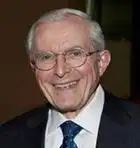Summing Up
Summing up the unusually large number of responses to the piece on street smarts, the consensus is that they represent skills taught by experience, role models, and experiential learning techniques such as case analysis and discussion (in that order).
Just who are street smart people? They are people who: are "willing and able to make a tough decision based on a gut instinct" (Jason Huang), are "more able to adapt to changing conditions ... because they have a clearer view of the implications of those changes" (Charles Yager), are able to "handle things outside of our normal set of experiences" (Erich Almasy), learn "by failing in previous endeavors" (Rindge), have an "ability to read people ... and situations ... (pick) up on all relevant cues and (know) what to do" (Max Roberts), are "focused on (their) capabilities ... sniffing the traps a mile away ... seeing through BS ... smelling falsehood" (Anonymous), are "able to accommodate ... to a new environment ... globalization is forcing a more general definition of street smarts" (Shankar Balakrishnan), and have a "combination of intuition, savvy and political skill" (Mal Rudner).
Efforts may be underway to understand more about issues related to street smarts. Lilly Evans, for example, cited the work in "practical intelligence" by Prof. Robert Sternberg of Yale University.
Street smarts, according to the most respondents, are learned. As David An put it, they are "primarily an issue of experience. ... If you screw up a deal you will be the best to know how to do better the next time." David Fitzgerald suggested that street smarts are a "combination of attitude and skill, both of which are acquired through experience. ... That is why so many MBA programs teach using the case study method..." Jack Wung appeared to take issue with this view, suggesting that "street smarts can only be acquired in the school of hard knocks."
How can MBA study contribute to street smarts? Umar Khalid suggests a complementary relationship, commenting that, while no substitute for street smarts, the MBA provides "tools and strategic understanding skills that accelerate an average human being's learning curve." Will the continued importance of street smarts, as some suggested, mean a change in recruiting criteria for MBA programs? Or changes in curricula, with more emphasis on sensitivity to others' views and how to influence them as well as greater self-awareness? Or the greater employment of role models—especially those who have learned from adversity—in the classroom? What do you think?
Original Article
In recent weeks, I have encountered several situations in which senior managers and investors of all ages have said, "(name) is a really sharp person with a good MBA, but (he or she) just doesn't have street smarts." That has raised questions that seem to need addressing. The first is, just what are street smarts anyway? The contexts in which the term has come up seem to indicate that they include things like knowing how to close a sale, when to walk away from a deal, when to remain silent, and how to select winners as employees or colleagues.
In our work with outstanding service organizations, we have found that they invariably hire for attitude and train for skills. Are street smarts attitudes or skills?
If street smarts are attitudes, should MBA program admissions offices look for them in applicants? If so, how? Is it more than a matter of just age and experience? If they are skills, should the curriculum be designed to foster them, perhaps through greater emphasis on courses in negotiating skills and increased field experience, among others, on the assumption that street smarts can be taught?
The second question concerns just how street smarts are obtained. Is it a matter of the genes? Do they result from experience, therefore precluding most newly-minted MBAs in their twenties from having them? Or does their presence depend on the environment in which one grows up? For example, a study by John Kotter several years ago found that one of the best predictors of success for at least one class of Harvard MBAs was whether or not a parent of the applicant had had a career in management. An implication that one might draw from this finding is that the presence in a household of a management role mode contributes to the business success of offspring. This, of course, may not guarantee the early development of street smarts.
If experience is the key, how does one get it? Should more MBAs be counseled to become involved in jobs, perhaps in start-ups, where they can hone their street smarts? Or can they be developed in any kind of organizational context?
Finally, just how important are street smarts anyway? What does your experience tell you regarding these questions? What do you think?

